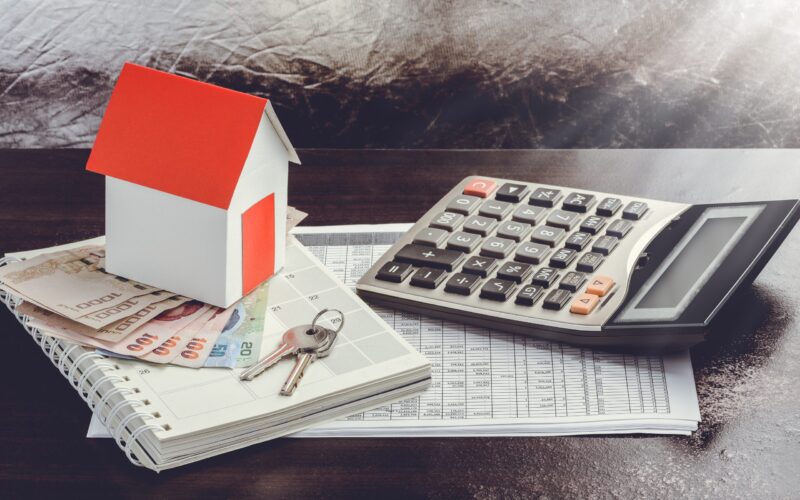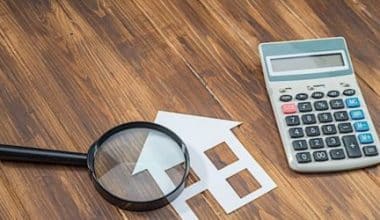Almost all mortgage providers advise soon-to-be house owners to have an escrow account. With the escrow account, they are sure you wouldn’t miss a mortgage payment. And you on the other hand won’t have to worry about tax bills and insurance premiums because it is added to your escrow. Unfortunately, the fluctuation in taxation and insurance companies results in a shortage in your escrow account. But then, if you are new to this, you’d definitely want to know, What does escrow shortage mean, what do you do if you can’t pay your escrow shortage, and just how do you avoid it entirely? The guide explores everything you need to you about dealing with escrow shortage payment and how to fix it.
Escrow Shortage
It is easier to understand what the escrow shortage is when you know how the escrow account operates. There will never be a shortage without an escrow account.
What Is An Escrow Account?
Currently, most mortgage loan providers will require you to have an escrow account before giving you the mortgage loan. An escrow account is similar to a savings account, but this time, it is managed by your mortgage lenders. At the time of your purchasing or refinancing a property, an escrow account is set up by your mortgage provider. The escrow account simply takes care of your property taxes and homeowners insurance. The mortgage lenders collect the money in installments and make the relevant payments.
The account is a mediation that guides the interest of both parties. It covers your property tax, insurance, and your monthly mortgage payment. Moreover, the service provider will evaluate your account once a year to ensure it still holds enough money to cover your bills. In the course of this, your account may be underestimated or overestimated. This is known as escrow shortage or overcharge. There are mortgage providers who will insist you deposit a little bit above the expected payment because the tax bills may change when reviewed.
What Does Escrow Shortage Mean?
Escrow shortage occurs when your escrow account balance is below the predetermined threshold. It simply means your account does not hold enough money to cover your property costs. Your property costs include monthly mortgage, taxes, insurance, and so on.
If there is an increase in the tax bill or insurance premium, your monthly escrow payments will rise as a result of these changes, and you will be responsible for filling the shortage. Having an escrow shortfall means that your mortgage lender evaluated the balance in your account. At the end of that assessment, he realized the money in the account balance will not cover the necessary bills it should. Simply put, the money your escrow account holds will is not enough to pay for tax and insurance.
What Causes An Escrow Shortage?
The major cause of escrow shortage is an increase in insurance premiums or tax bills.
Changes in Tax
The changes in tax payable are not done on monthly basis and the causes are traceable to the following;
- A possible rise in the value of your property
- Fall in the value of property
- Economic conditions such as the Covid-19 lockdown and so on
The changes in insurance premiums are also traceable to the type of coverage, degree of coverage, property value, and insurers.
Other causes of Shortage
- You changed your insurance provider
- The due date of your property taxes and/or insurance payments changed.
- Your last escrow payment was lesser than should it be
Escrow Shortage and Escrow Deficiency
The escrow shortage means there is money in your account, however, it wouldn’t be enough to cover the coming expenses that need to be made. That is, the account has a positive balance, but not enough to cover future expected taxes and insurance, there is an escrow shortage.
While escrow deficiency means you are owing. An escrow deficiency occurs when your escrow account has a negative balance. This happens when your mortgage provider uses their money to reimburse your expenses. That means that not only are your tax and insurance payments due, but you also owe money to bring your account up to date.
How To Avoid Escrow Shortage
The variables responsible for the changes that lead to this shortage are not controllable. Since you cannot control the influence of taxes and mortgage insurance over your property, how best can you avoid escrow shortage? The following steps will help you avoid a shortage in your escrow account.
Pay Attention To The Tax Information And Insurance Correspondence
These two will never increase their price without informing. While your insurance company will send regular correspondence, your city tax will likely send their mail. If you follow both closely with keen attention, you will notice any possible change before the escrow service provider sends you a shortfall notification.
Put your surplus back into your escrow account
The second way to avoid having an escrow shortage is to return any escrow surplus checks they receive to their account. Irrespective of the urgent need it will meet, putting your profit back will limit shortage occurrence.
Always have emergency funds available
Having extra money at hand is another way to avoid escrow shortages.
Keep an eye on your escrow account record
To make sure you don’t run out of funds to cover your escrow costs, monitor your account balance closely.
Reduce your escrow payment
By minimizing the cost of your property taxes or homeowner’s insurance, you can lessen the risk of a shortage. You may be able to get a lower escrow payment rate by disputing your property taxes or finding out if you are eligible for tax exemptions. You can also go for an insurance policy and company with lower charges.
Do away with an escrow account
As a last resort, you may be able to forego escrow and pay your taxes and insurance premiums each month. If you think you do not have the resources to operate one, just opt-out of it.
Pay more than is required amount
If you have extra cash, you can pay more than is required during your installment.
Mortgage Escrow Shortage Payment
There will be a gap between your current account balance and the new monthly payment amount due if you are in an escrow shortage. There are three payment methods for dealing with an escrow shortfall.
How to Pay for a Shortage
In dealing with an escrow shortage, you can decide to pay in the following ways;
Make a one-time escrow shortage payment
If you have emergency funds available, you can decide to make a lump size payment to make up the difference.
Pay Installmentally
Just in case you do not have a lump size payment to make, you can decide to pay the shortage by installment. All you have to do is spread the payment over a while.
Roll Payment Over
If you can’t pay your escrow shortage once or via installment, you can choose to defer the payment till your next payment is due.
Can’t Pay Escrow Shortage
When you can’t pay your escrow shortage what do you do?
Your service provider will send you notifications after running his analysis on your account in line with your expenses. You are expected to make up the difference. When you can’t pay the shortage instantly, you can decide to pay in installments. This simply means you can spread the escrow shortage payment over some time.
Conclusion
If you decide to open an escrow account or you already have one, always remember you cannot avoid shortage but you can always limit its occurrence. Furthermore, the benefits of having the account outweigh its disadvantages. Your mortgage provider handles tax and insurance while you get on to other financial escapades.
FAQs On Escrow Shortage
Does a Fixed Rate Mortgage Lower Your Escrow?
When you have a fixed-rate mortgage, you pay the same amount of interest for the entire period of your loan. Variable-rate mortgages tend to change over time. This means if your interest rate is stable, the amount you pay in escrow must also remain constant.
How often does the escrow account get analyzed?
It’s important to know how often the trust account is analyzed. In most cases, this happens once a year. However, should your mortgage provider discover a problem that affects your payment, they fix another analysis.
If I pay my escrow shortage, will my monthly payment remain the same?
If your taxes or insurance premiums rise, even if you pay the whole shortage, your payment may still rise
- ESCROW OFFICER: Overview, Salary & How To Become An Escrow Officer
- Escrow Disbursement: Definition, Types, Pros, and Cons
- WHAT IS ESCROW ON MORTGAGE: Advantages, Disadvantages & How It Works
- Escrow on a Mortgage: Understanding the Escrow Process & Requirements
- Escrow Agent: A Simplified A-Z Guide (+ Updated Sample)






